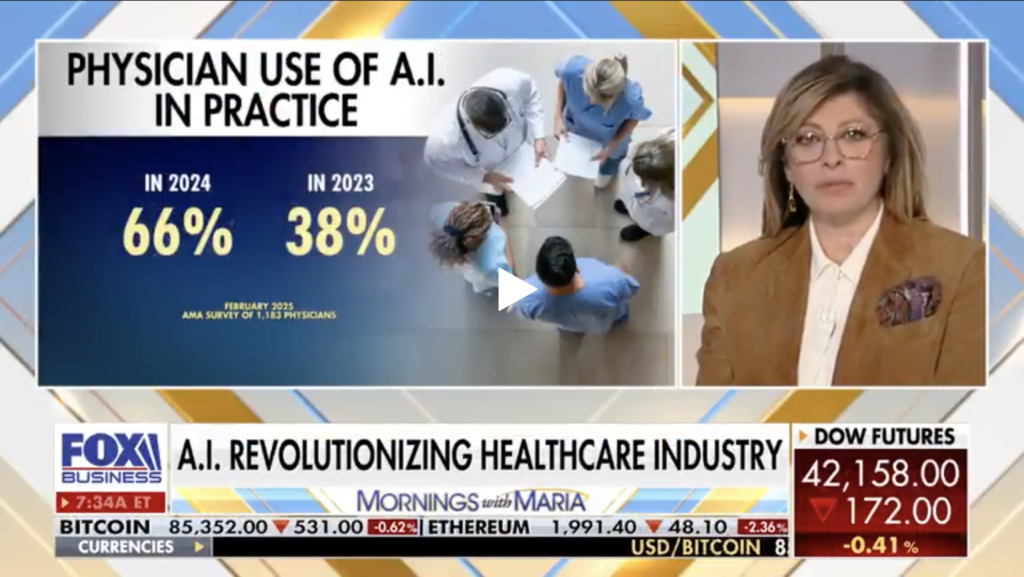How can AI help improve the US healthcare system while controlling costs? In an interview between Maria Bartiromo and Dr. Tony Cosgrove, they discussed the impact of AI on the medical field. According to the American Medical Association, the medical sector is already benefiting from AI adoption, with 66% of doctors using AI in 2024 compared to 38% in 2023. This trend is expected to continue growing. Below are some of the key takeaways that I got from the interview on Mornings with Maria.
Tracking and Summarizing Medical Data
The volume of medical data is doubling every 73 days, with 1.8 million articles produced annually, making it difficult for medical staff to keep up. AI can help by tracking and summarizing this data for medical personnel.
Cost-Saving Diagnosis
AI can also assist in cost control through better diagnosis and automation. Healthcare currently accounts for 18.7% of GDP, projected to grow to 20%. According to Dr. Cosgrove, Goldman Sachs estimates that AI could save the healthcare industry between $200 billion and $360 billion annually.
Artificial Intelligence to Increase Productivity
Additionally, AI can improve productivity by automating processes and paperwork, allowing doctors and nurses to focus more on patients. This will empower the doctor to be more empathic to the patient, improving their experience as well as the diagnosis accuracy. It is estimated that 60% of hospital costs are related to personnel, and AI could improve hospital productivity by 28%.
Data Security Risks
However, AI poses risks (i.e. patient data security and AI trust/transparency) which need to be addressed in the near term. In another blog, I touch upon the importance of improving AI trust and explainability to further AI adoption. Despite these challenges, AI is already having a significant positive impact on healthcare.

“AI Revolutionizing Healthcare Industry” on Mornings with Maria.
Here is the link to Dr. Tony Cosgrove’s interview on the FOX Business show Mornings with Maria: Doctor argues AI can ‘clearly’ make better diagnoses than ‘some’ medical professionals | Fox Business Video.



